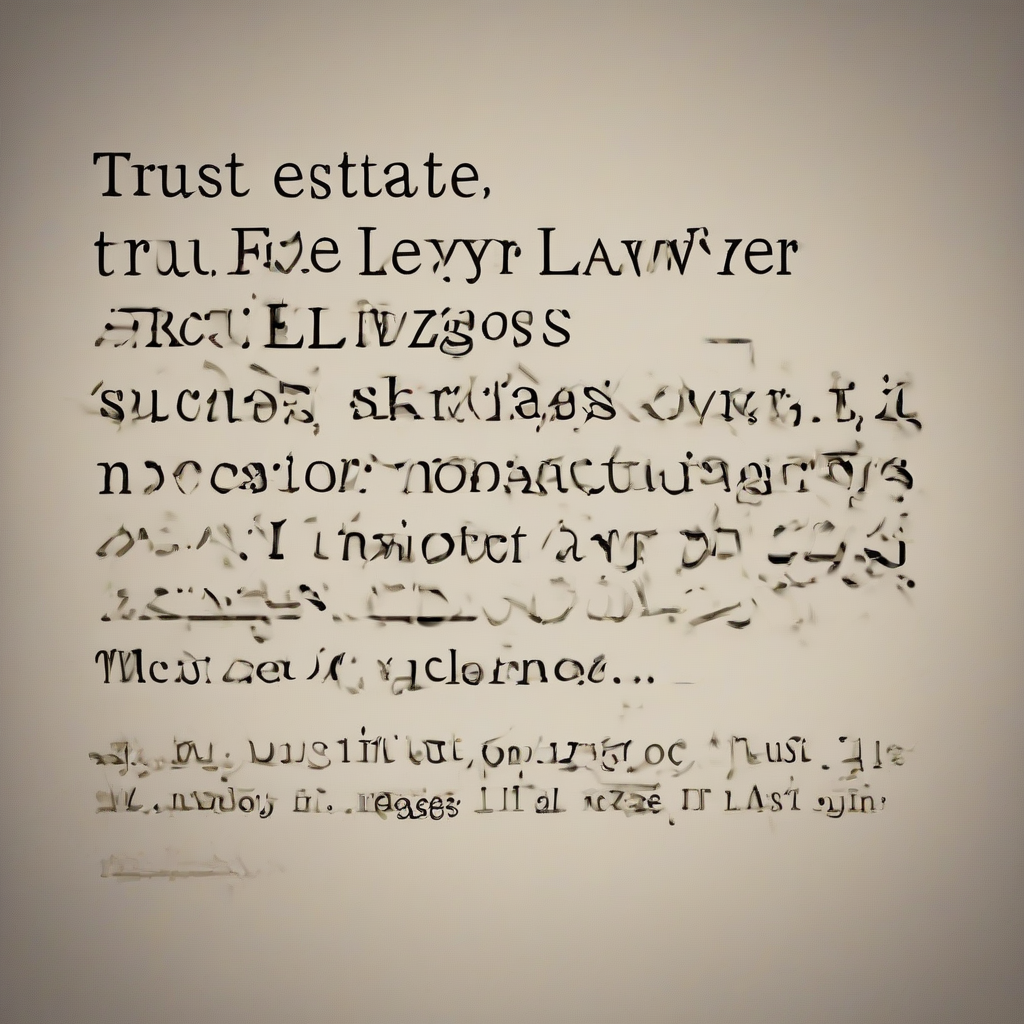Navigating the Complexities of Trust Estate Law: A Comprehensive Guide for Executors, Trustees, and Beneficiaries
Trust estate law is a specialized area of legal practice that governs the creation, administration, and distribution of assets held in trust. Understanding this intricate legal landscape is crucial for anyone involved in a trust, whether as an executor, trustee, or beneficiary. This comprehensive guide will delve into the key aspects of trust estate law, providing valuable insights into its complexities and offering guidance for navigating the various challenges it presents.
What is a Trust?
At its core, a trust is a legal arrangement where one party (the trustor or grantor) transfers ownership of assets to another party (the trustee) to manage and distribute those assets for the benefit of a third party (the beneficiary). This transfer of assets is governed by a legal document known as a trust instrument or trust deed, which outlines the terms and conditions of the trust.
Different types of trusts exist, each tailored to specific needs and objectives. Common types include:
- Revocable Trusts: These trusts allow the grantor to modify or terminate the trust at any time.
- Irrevocable Trusts: Once established, these trusts cannot be altered or terminated by the grantor.
- Living Trusts (Inter Vivos Trusts): Created during the grantor’s lifetime, these trusts can help manage assets and avoid probate.
- Testamentary Trusts: Created through a will, these trusts come into effect upon the grantor’s death.
- Charitable Trusts: Established for charitable purposes, these trusts often receive tax benefits.
- Special Needs Trusts: Designed to protect the assets of individuals with disabilities while preserving their eligibility for government benefits.
The Role of a Trust Estate Lawyer
A trust estate lawyer plays a critical role in the entire lifecycle of a trust. Their expertise extends to various aspects, including:
- Trust Creation: Drafting and reviewing trust documents, ensuring they accurately reflect the grantor’s wishes and comply with relevant laws.
- Trust Administration: Advising trustees on their fiduciary duties, ensuring proper management and distribution of trust assets.
- Trust Litigation: Representing beneficiaries or trustees in disputes arising from trust administration, such as disagreements over distributions or allegations of breach of trust.
- Trust Modification and Termination: Assisting with amending existing trust documents or terminating trusts when appropriate.
- Estate Planning Integration: Integrating trusts into comprehensive estate plans to minimize taxes and ensure smooth asset transfer.
- Tax Planning: Advising on tax implications associated with trusts and ensuring compliance with tax laws.
Key Responsibilities of Trustees
Trustees have a significant responsibility to act in the best interests of the beneficiaries. This fiduciary duty encompasses:
- Prudent Management: Investing and managing trust assets responsibly to maximize returns while minimizing risks.
- Impartiality: Treating all beneficiaries fairly and equitably.
- Accountability: Maintaining accurate records of trust transactions and providing regular accountings to beneficiaries.
- Compliance: Adhering to the terms of the trust instrument and all applicable laws and regulations.
- Conflict of Interest Avoidance: Avoiding situations that could create conflicts of interest between the trustee’s personal interests and the interests of the beneficiaries.
Beneficiary Rights and Responsibilities
Beneficiaries have certain rights and responsibilities regarding the trust. These include:
- Right to Information: Beneficiaries are entitled to receive regular accountings of trust assets and transactions.
- Right to Distribution: Beneficiaries are entitled to receive distributions of trust assets according to the terms of the trust instrument.
- Right to Challenge Trust Administration: Beneficiaries can challenge the trustee’s actions if they believe the trustee has breached their fiduciary duty.
- Responsibility to Cooperate: Beneficiaries should cooperate with the trustee in the administration of the trust.
Common Trust Disputes
Disputes can arise in various contexts related to trusts. Some common areas of conflict include:
- Disputes over Trust Interpretation: Ambiguities in the trust instrument can lead to disagreements about the trustee’s interpretation and actions.
- Breach of Trustee Duty: Allegations of mismanagement, self-dealing, or conflicts of interest can result in litigation.
- Disputes over Distributions: Disagreements among beneficiaries regarding the distribution of trust assets are common.
- Lack of Transparency: Insufficient information provided by the trustee to beneficiaries can cause mistrust and lead to disputes.
Choosing a Trust Estate Lawyer
Selecting the right trust estate lawyer is crucial for ensuring the successful creation, administration, and resolution of any issues related to a trust. Consider these factors when making your choice:
- Experience and Expertise: Look for a lawyer with extensive experience in trust and estate law.
- Reputation and References: Check the lawyer’s reputation and seek references from previous clients.
- Communication and Accessibility: Ensure that the lawyer communicates effectively and is readily accessible.
- Fees and Billing Practices: Understand the lawyer’s fee structure and billing practices.
Conclusion (Not included as per instructions)
